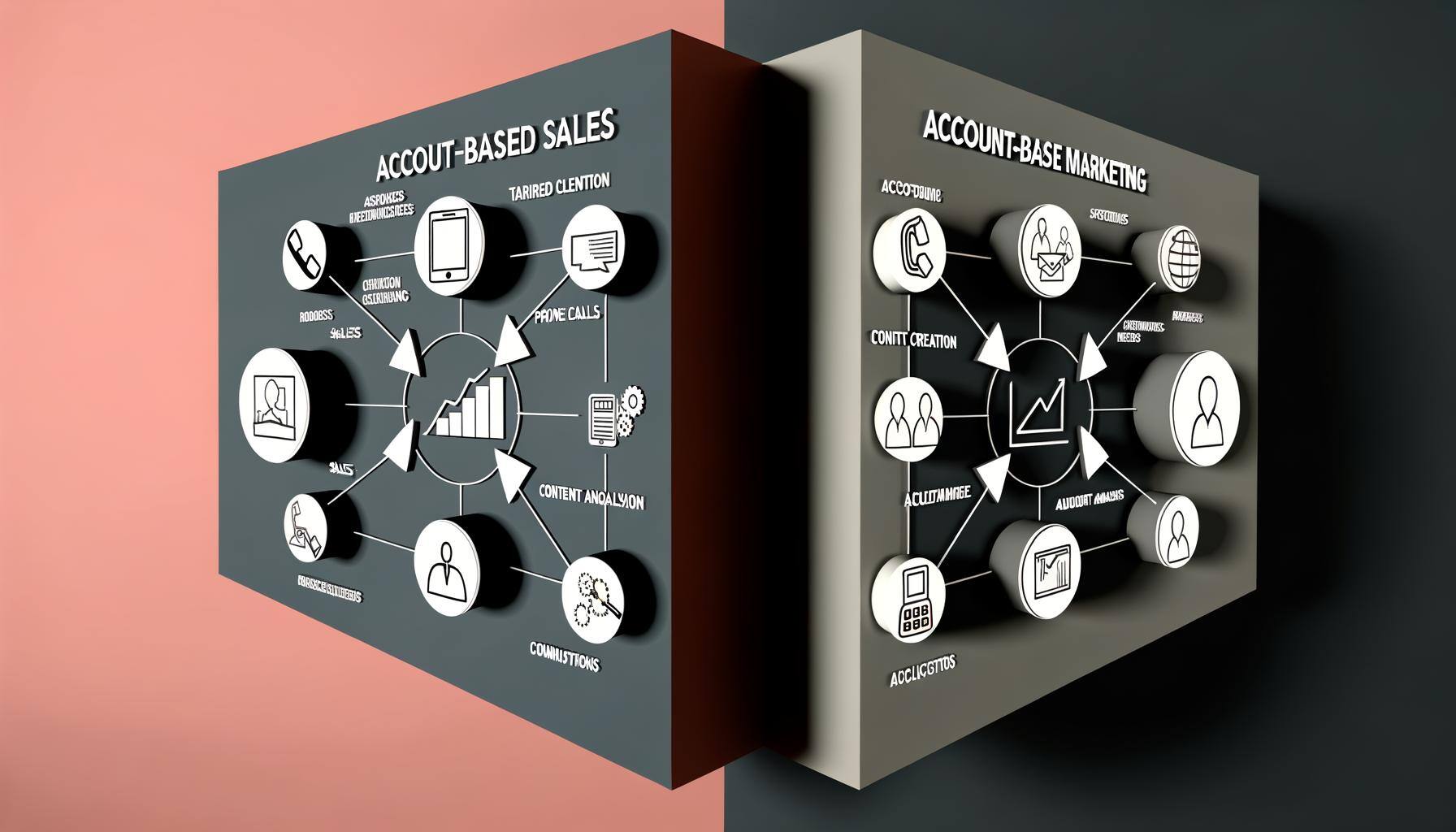-
Digital Marketing
We help you to use your digital potential. For a strong positioning, more visibility and more leads.
Get Growth ready
With the BEE.Transformance model, we bring continuous and profitable growth to your company. A new mindset for your team.
Industries
We transform your challenges into opportunities through the experience we have gained from projects in these industries.
-
HubSpot Services
As a HubSpot Diamond Partner, we help you implement your digital growth strategy with a focus on performance - by implementing and integrating new and existing systems as well as 3rd party apps.
HubSpot Thought Leader
As a HubSpot Diamond Partner with +50 certifications, host of the HubSpot User Group Zurich, HubSpot Trainer and HuSpot User Champions, you have access to in-depth HubSpot expertise.
HubSpot Solutions
The BEE.Theme offers you more creative freedom than any other theme on the market. Whether you're a beginner or a professional, a creative mind or a digital agency - with the BEE theme, you can easily unleash the maximum power for your pages in HubSpot CMS.
-
BEE.Blog
Knowledge around digital marketing, digital sales, technology, data intelligence and employees.
Knowledge Base
Pure knowledge: everything essential concentrated, compact, digitally prepared for you and ready to download.
What is inbound?
The most effective way to successfully combine digital marketing and digital sales.
-
BEE.Team
The BEE.Performers: many different characters - with one thing in common: the fascination for a digital world.
References
More than 100 large and small companies have already started with BEE: to more visibility, more performance, more growth.
Invest
Participate in the growth of BEE and become part of the BEE Growth Story by purchasing Digital Share Tokens.
We're hiring
Become a BEE.Performer! Are you ready for your own transformation?
8 AI Trends in Sales and Marketing: Crafting Tomorrow's Strategies
In 1950, the British polymath Alan Turing published "Computing Machinery and Intelligence" – a pioneering exploration into the mathematical possibility of artificial intelligence (AI). Well, here we are, over seventy years later, relying on AI in just about every facet of our daily lives.
Today's workforce, predominantly comprised of millennials, is at the forefront of the AI revolution. It is driving the integration of new technologies that are rapidly reshaping numerous industries. Sales and marketing professionals are embracing AI to enhance efficiency and productivity and stay ahead of the curve and avoid obsolescence.
Understanding AI trends is essential for businesses to maintain competitiveness. AI trends encompass various applications, from predictive analytics to natural language processing (NLP). Mastering these trends isn't just advantageous; it's imperative for driving competitive advantage and enhancing customer experiences.
8 AI Trends in Sales, in Marketing and Strategy Examples
With new developments emerging daily, how can you decide which one to invest in for your business? What is merely advantageous, and what is absolutely essential?
As specialists in sales and marketing automation and integration, we maintain a keen eye on the AI landscape to provide timely and effective recommendations for our clients. Below, we've outlined the eight pivotal AI trends currently shaping the future of sales and marketing, offering insights into these trends and practical examples of how they can be deployed.
1. Hyper-Personalisation
According to 92% of marketers, your customers and prospects have come to expect a personalised experience. By leveraging AI, your business can hyper-personalise, allowing you to tailor products, services, and experiences to individual customer needs in real-time. From targeted advertising to dynamic pricing, hyper-personalisation enhances customer satisfaction and drives conversions.
Example Strategy:
Meet Sarah. She's a customer who enjoys browsing online for skincare products, exploring various brands and adding items to her basket. However, she only sometimes completes her purchases.
Your business could implement an AI-driven system to track Sarah's browsing behaviour and past purchases. When she visits your website next, the system will dynamically generate personalised product recommendations tailored to her preferences and previous interactions.
For instance, if Sarah is particularly interested in solutions for dry skin, the website could display moisturiser recommendations targeting this specific issue. To further encourage Sarah to proceed with the purchase, the system could offer her exclusive discounts or promotions on items that align with her interests.
Ultimately, this level of personalisation enhances Sarah's shopping experience and encourages her to purchase. In the long run, you're cultivating a more loyal customer who appreciates your attention to detail and caters to her specific preferences.
2. Predictive Analytics
Understanding market trends accurately and anticipating customer behaviour can maximise your return on investment (ROI). Predictive analytics are always a hot topic – they give human decision-makers the necessary insights to create proactive strategies that deliver results.
Example Strategy:
A prime example of where predictive analytics can have a significant impact is within the fashion retail sector. Businesses in this domain can utilise predictive analytics to foresee future trends and consumer preferences. This, in turn, will aid in managing inventory more efficiently and crafting highly impactful marketing campaigns.
For instance, your predictive analytics model may identify that the upcoming winter season will witness a surge in demand for oversized jumpers. Armed with this insight, you can proactively adjust inventory levels to ensure an ample supply of oversized jumpers. Moreover, your marketing team can begin highlighting this product in campaigns, positioning it as the season’s must-have item. By targeting customers whose past purchasing behaviour and demographic information suggest they may be interested in this particular jumper, you can optimise the effectiveness of your marketing efforts.
3. Smarter Chatbots
The functionalities that AI-powered chatbots offer today are truly impressive, especially with the integration of natural language programming (NLP) tools like ChatGPT. Responsive and helpful around the clock, they can evolve into the perfect customer support or sales expert. Best of all, numerous low-code or no-code chatbot tools are readily available today, so nothing is stopping you from building your own. Today’s chatbots are designed to bridge the gaps within your business and support a frictionless customer experience.
Example Strategy:
Chatbots can wear many different hats: instant technical support, product recommendations, automated appointment scheduling—these are all ways you could get chatbots to optimise your customer service and sales process. When appropriately integrated, your chatbot can instantly solve many of your lead and customer queries. A great example is when a lead visits your website after hours, browses specific product or service pages and is interested in speaking with someone on your sales team. Of course, your sales team may not be available at 23:52 on Sunday, but your chatbot is! Not only can Mr Bot answer some of your lead’s queries, but he/it can also prompt the visitor to book a sales call, ensuring they don’t just move on from your website without taking a conversion action.
4. Sales Enablement, Automation, and Productivity
Sales are inherently tied to measurability – it's imperative for businesses to optimise every process and task within the sales cycle to ensure success and profitability. By leveraging AI, your sales team will find themselves liberated to concentrate on high-value tasks, as automation and algorithms assume control over much, if not most, of the manual workload they previously handled. This shift enables your sales leaders to make data-driven decisions with greater accuracy while affording your sales team more time to dedicate to crucial client interactions and optimisation tasks.
Example Strategy:
Compliance is a key concern for financial institutions. Ensuring everything is up to scratch whenever ad hoc checks occur is essential, but it can also completely derail your teams from their current priorities. The use case for AI in this realm can be to automate reporting and provide accurate information for decision-making and auditing purposes. AI can also be used to evaluate customer financial behaviour, facilitate personalised sales approaches, and identify cross-selling opportunities.
5. Collaborative Marketing
Collaborative marketing is a term used to describe several phenomena. First off, we have the fact that people are moving away from Google for some search queries, preferring the conversational approach of ChatGPT.
Smart, collaborative marketing empowers team members and partners to create AI-powered communities leveraging collective resources to maximise impact.
Collaborative marketing can be facilitated and enabled by AI-powered collaboration tools that make real-time communication and data-driven decision-making possible. These steps will help to enhance efficiency and coordination to deliver better results for businesses.
Example Strategy:
Marketing agencies often use AI-powered collaboration tools to optimise campaign effectiveness. Team members and clients can get instant feedback and share ideas using a real-time communication platform like Slack.
There’s also the option to use AI bot integrations to streamline project management by automating task assignments and deadline tracking. Google Workspace enhances productivity with cloud-based document collaboration, allowing team members to work on marketing materials simultaneously. HubSpot’s AI-driven data analytics tools provide actionable insights into campaign performance, guiding strategic decision-making.
6. Sales und Marketing Attribution
Whether your sales and marketing campaigns will hit the mark or fall short is no longer a mystery wrapped in alchemy. Thanks to AI-powered attribution models, demonstrating the impact of your efforts is now within reach. These models offer valuable insights into the customer journey, empowering your team to fine-tune strategies and boost ROI. Accurate attribution reports not only bolster your sales and marketing teams' budget defences but also inform resource allocation and campaign optimisation.
Example Strategy:
Retailers can use AI-powered attribution models to review various touch points along the customer journey, gaining deeper insights into campaign effectiveness and customer behaviour. An AI algorithm can analyse data from multiple channels and pinpoint the most influential touchpoints. Your team can then allocate more resources to these touchpoints to further improve results. CRMs like HubSpot allow businesses to integrate online and offline traffic sources, providing a better understanding of what's driving conversions and, ultimately, profit.
7. Sentiment Analysis
Collecting basic customer feedback is invaluable, but transforming this into actionable insights is a challenge. While surveys still have a role in gauging customer sentiment, limitations exist. Social media, blogs and reviews provide an abundance of unstructured data that can make understanding your customers’ opinions even more complex. Sentiment analysis tools powered by AI enable businesses to understand customer emotions and tailor messaging accordingly. By delving into the nuanced tones of customer feedback and interpreting longer sentence fragments to grasp the essence of customer sentiment, your business stands to gain a whole new picture.
The application of AI-powered sentiment analysis is fast. From stock market forecasting to employee engagement management, countless business areas will be affected by this powerful and increasingly more accurate tool.
Example Strategy:
The hospitality industry is practically built on vibes and feels. Poor customer experiences can be damning for establishments, especially since dining, sleeping or enjoying recreational time are such personal, individualistic experiences.
By diving into feedback from places like social media, reviews, and surveys, hospitality businesses can get the lowdown on what customers love (or not so much). That means they can tweak things to ensure every visit feels like a little slice of heaven.
Thanks to advanced AI algorithms, companies can sort through all that feedback and categorise it into the good, the bad, and the average. Then, they can whip up marketing magic based on all the good vibes while also getting ahead of any issues and making things even better for next time.
By empathising with customer emotions and addressing concerns effectively, the company fosters stronger connections and builds long-term loyalty among its customer base.
8. Voice Search Optimisation
AI has revolutionised voice search by enabling everyday devices to understand natural language queries - in other words, your phone has become your new best friend.
By adapting to this trend, your business can stay relevant in a landscape dominated by virtual assistants like Siri and Alexa.
By tailoring your content and SEO strategies to conversational queries, your business can capture the growing segment of voice search users effectively and drive more website traffic.
Example Strategy:
House hunting, whether to rent or buy, is always challenging. AI-driven voice search optimisation can simplify the process. Real estate agencies that embrace AI-driven voice search, for example, can enhance property visibility and attract potential buyers or tenants. AI algorithms meticulously analyse conversational queries related to real estate, identifying common search patterns and user intents. The agency then optimises its property listings and website content with natural language phrases and location-specific keywords specifically tailored to voice search queries, such as "Find houses for sale near me" or "Show me apartments to rent in [location]". Property descriptions can then be carefully constructed to provide concise, useful answers to the common questions people ask via voice search. By taking these measures, the real estate agency ensures that its listings rank well in voice search results, increasing exposure and drawing more leads.
Which AI trend will affect your business?
Now is not the time to bury your head in the sand and treat AI as a passing fad. The businesses that proactively integrate the right AI solutions into their tech stack will be positioned to ride the wave of growth and development in the coming years.
In this article, we’ve explored eight pivotal trends, all pointing towards one thing: businesses are at a crucial juncture. Embracing and evolving with AI is paramount to staying competitive; failure to do so risks falling behind and losing out to competitors. The trends that will most affect your business depend on your current infrastructure and goals.
Deals are becoming more complex, demanding heightened personalisation and efficiency. In such a dynamic environment, leveraging AI presents a clear pathway to innovation and process optimisation, driving growth and ensuring sustained relevance.
Our team at BEE Digital recognises the significance of aligning AI trends with your business objectives. We're here to offer the expertise and support needed to navigate this era of AI effectively. Let us help you harness the potential of AI to automate and optimise your sales and marketing processes, empowering your business to thrive in the digital age.
Together, we'll navigate the complexities of tomorrow's sales and marketing landscape, ensuring that the tools you utilise not only support your strategies but propel you towards your goals. Schedule a scoping audit with us today and embark on the journey to AI-driven success.
Related Posts

UX design: The key to customer satisfaction
Philipp Schirmer | 20 Jun 2024
In this blog post, you'll find out why UX design is crucial for customer satisfaction and how you can make the most of it.
reading time: 7min
Zum Blog

Differences Between Account-based Sales (ABS) and Account-based Marketing (ABM)
Philipp Schirmer | 6 Jun 2024
In the realm of B2B strategies, ABS and ABM are key players in targeting high-value accounts. Discover their unique approaches and how they drive results.
reading time: 7min
Zum Blog

Unlocking Revenue Growth: Strategies to Master Upselling and Cross-Selling
Philipp Schirmer | 14 Sep 2023
Is your B2B operation scraping the bottom of the barrel for new leads? Stuck in a saturated market? Need to amplify your sales but don't know where to dial in your ...
reading time: 6min
Zum Blog
